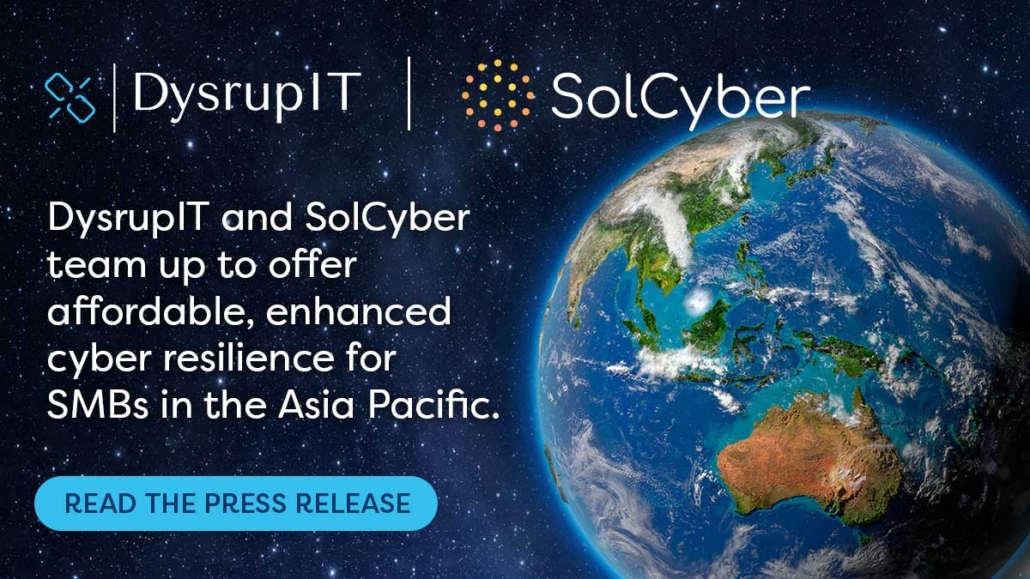DysrupIT and De La Salle Lipa: A Landmark Partnership for Cybersecurity Excellence
On the 15th of March, DysrupIT proudly signed a Memorandum of Understanding (MOU) with De La Salle Lipa (DLSL), marking a significant milestone in the field of cybersecurity education and collaboration. This partnership, celebrated amidst the vibrant backdrop of the ASEAN-Australia Special Summit in Melbourne, is not just a testament to our shared vision but a step forward towards securing a safer digital future for the Philippines and beyond.
A Shared Vision for Innovation and Education
DysrupIT has always been at the forefront of cybersecurity innovation, providing cutting-edge solutions that safeguard businesses and communities. Our partnership with DLSL, a respected institution with a rich history of academic excellence, is a leap towards empowering the next generation of cybersecurity professionals.
The MOU encapsulates our joint commitment to enhance academic disciplines and institutional linkages. It lays the foundation for:
- Joint innovation of academic programs
- Collaborative teaching and facility arrangements
- Shared resources and expertise
- Faculty and staff exchange programs
- Leveraging existing and prospective partnerships for mutual benefit
The signing ceremony, hosted by the Australia-Philippines Business Council, was more than just a formal event. It was a gathering of like-minded individuals and organizations dedicated to fostering trade and investment while promoting educational cooperation between the Philippines and Australia.
Elizabeth Hermosura, the visionary Founder of DysrupIT, alongside esteemed representatives from DLSL, including Brother President Br. Edmundo Fernandez FSC, solidified this partnership with optimism and a shared commitment to excellence.

La Salle Lipa and DysrupIT partnership signing ceremony
What This Means for the Future
This MOU is the cornerstone of our mission to build a robust pipeline of talent equipped to tackle future and emerging cyber threats. By integrating JCU’s advanced cybersecurity curriculum with De La Salle’s academic rigor, we aim to create a unique educational exchange that benefits both faculty and students. This collaboration is a beacon for innovation, illuminating new pathways for students from De La Salle Lipa to gain invaluable experience in Australia and bring back knowledge and skills that will enrich the cybersecurity landscape in the Philippines.
Furthermore, this partnership aligns with Townsville’s ambition to establish itself as the next hub of innovation in QLD and Australia. By sharing skills and capabilities from the Philippines, we contribute to training veterans, First Nations people, and IT graduates from JCU in cybersecurity and other emerging technologies.
DysrupIT’s Journey Ahead
As we celebrate this pivotal moment, we also look forward to the implementation of this partnership and the tangible benefits it will bring to our communities. Our affiliation with the Australian Philippines Business Council and the visibility provided by their platforms, including the YouTube channel featuring our event video, is just the beginning.
This partnership with DLSL is a significant step for DysrupIT in our ongoing journey to champion cybersecurity innovation and education. It underscores our commitment to not just anticipate the future but to actively shape it.
Together with DLSL, we are not just preparing for the future of cybersecurity; we are defining it.
Stay tuned to our blog and follow us on our social media channels for updates on this exciting partnership and our collective progress towards creating a safer, more secure digital world.

With an impressive professional background in cybersecurity, Elizabeth has held key executive positions throughout Asia-Pacific and Japan. Her extensive experience has played a pivotal role in the exceptional growth and success of DysrupIT™. Her invaluable expertise has transformed the company into a thriving multi-million-dollar global enterprise.

 DysrupIT
DysrupIT DysrupIT
DysrupIT








 DysrupIT
DysrupIT
